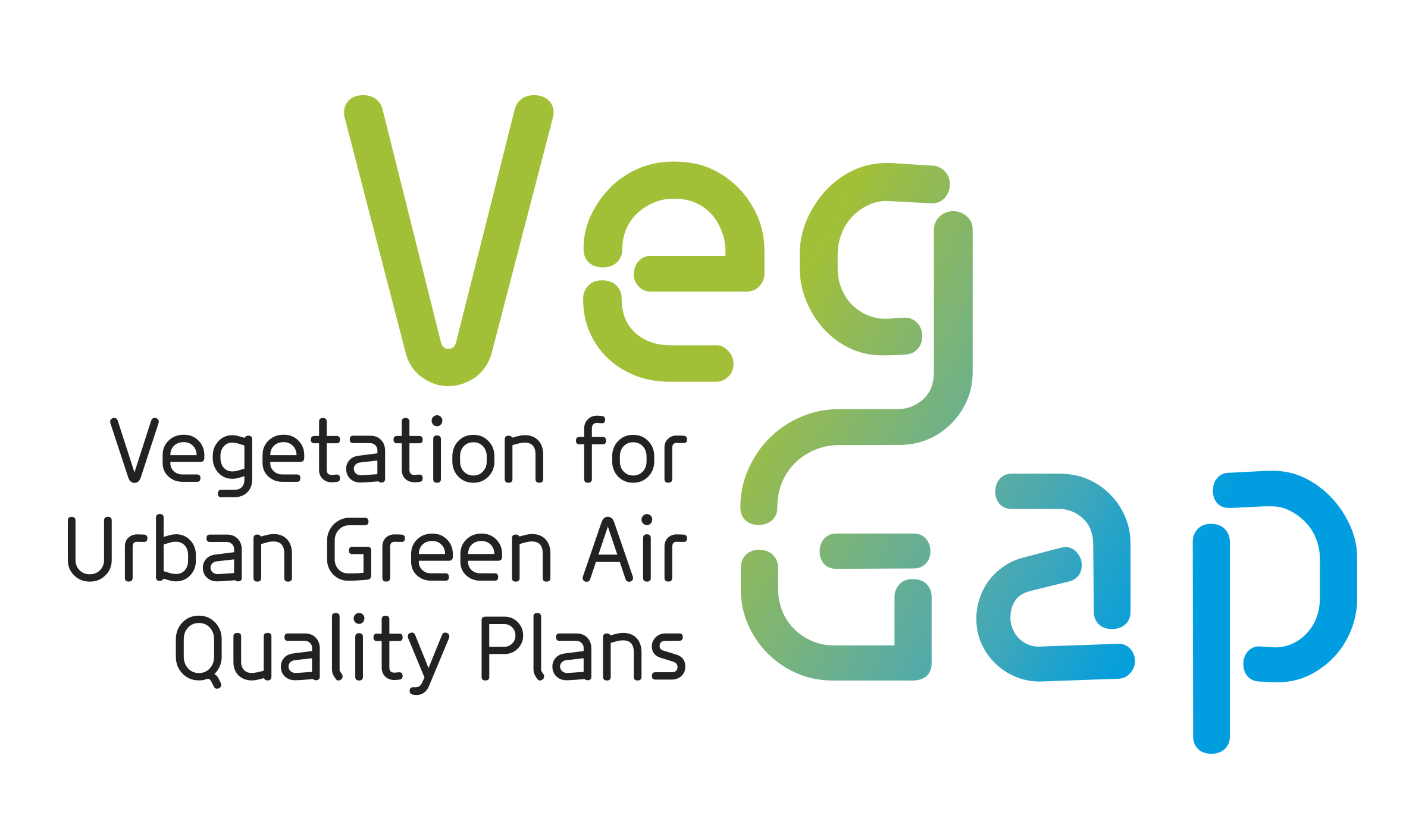After Bologna and Milan, the last round of second workshops in VEG-GAP project’s pilot cities took place in Madrid on 27th May 2021. The representatives of Madrid City Council (Ayuntamiento de Madrid) underlined the importance of providing complex and not simple solutions to environmental problems and that air pollution is one of these challenging problems. Madrid City Council has developed several projects and initiatives to tackle this problem trying to work at different levels, as: MICOS, La Isla de Color and the guide to naturalising its citizen patios.
The call to the Madrid longstanding “green vocation” has made it possible to VEG-GAP representatives to underline how their actions are fully integrated within this framework since the main objective of the project is to develop a strategy and tools to offer accurate and reliable information on the role of vegetation in urban environments and its effect on air quality and climate variables in view of their incorporation into urban planning, Air Quality Plans, Green, Infrastructure, Urbanism, Health, and so on.
As a matter of fact, the VEG-GAP project is related to other initiatives and projects held by the Madrid City Council, such as: Air Quality Plan A, Strategy 360, the Green Infrastructure and Biodiversity Plan, the Metropolitan Forest, the Arco Verde (developed in collaboration between the Comunidad de Madrid and the Ayuntamiento de Madrid), the Madrid + natural project.
A demonstration of this was offered with the presentation of the 4 hypotheticals building scenarios of Madrid. Scenarios that have been developed introducing different characteristics of land use and that specifically describe (for the base scenario and the future, information is provided on: Meteorology, Air quality, Deposit):
After the presentations of the keynote speakers, a dialogue took place between the participants on the interpretation of the results and the practical applications of the VEG-GAP project. The main findings were:
- Vegetation cannot be the only way to mitigate pollution, but rather must be used to reduce exposure to pollutants.
- It is essential to improve information sharing within administrations, as decisions concerning vegetation are sometimes made in urban planning. It is important to improve internal communication and information protocols.
- Urban planning must be “street to street” and not city planning. And that the function of the vegetation depends on variables that are different according to the urban fabric, the location of the streets, and so on.
Workshop Agenda:
- Ángeles Cristóbal (Madrid City Council): Greetings and introductions
- Luis Tejero (Madrid City Council and VEG-GAP project consortium member): Project introduction and workshop agenda
- Rafael Borge (Polytechnic University of Madrid and VEG-GAP project consortium member): Simulations of the effects of vegetation on air quality at mesoscale
- Rocío Alonso (CIEMAT): Can urban vegetation help improve air quality in cities?
- Salustiano Torre (CSIC-Jardín Botánico): Application of Nature-Based Solutions for local adaptation of educational and social buildings to Climate Change
- Juan Manuel de Andrés (Polytechnic University of Madrid and VEG-GAP project consortium member): Communication of Results of the LIFE VEG-GAP project


